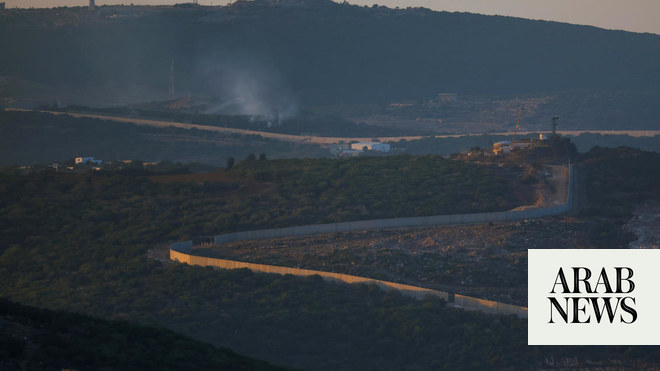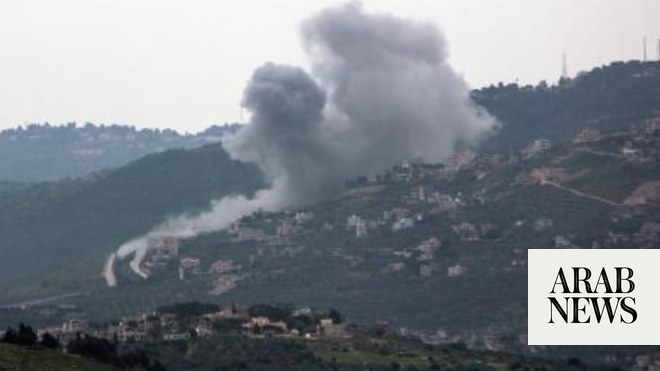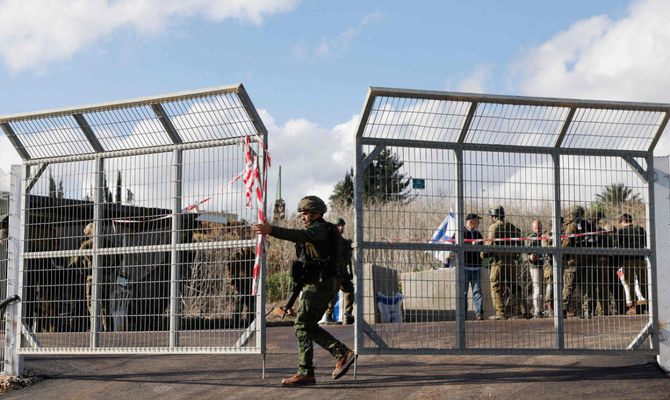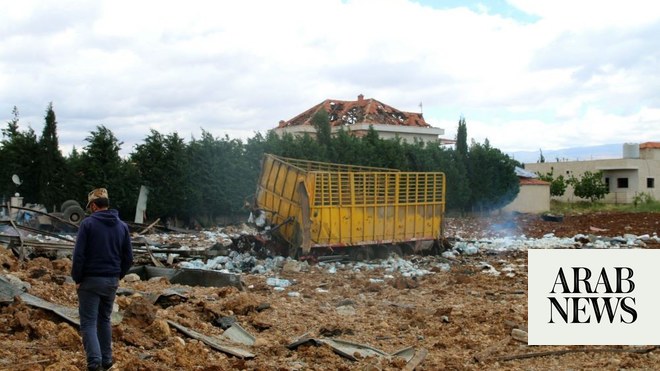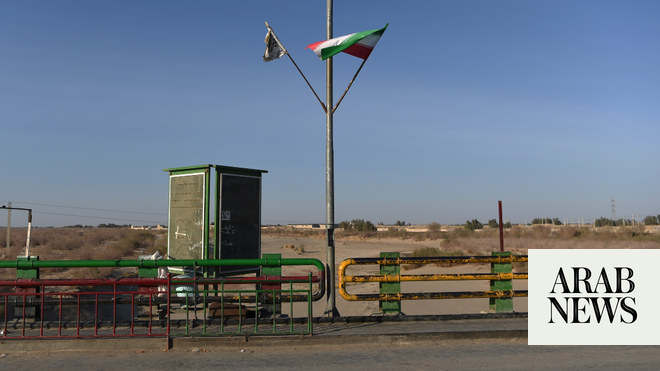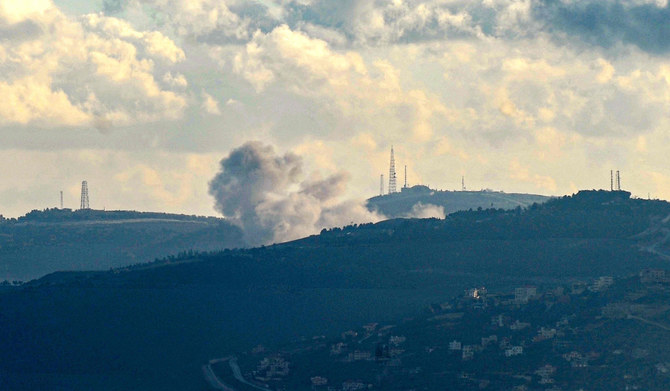
French, German ministers in Beirut, Egyptian FM due to arrive on Wednesday
Lebanon requests help to recruit 7,000 soldiers
BEIRUT: A diplomatic push is continuing in Lebanon, the result of ongoing efforts by the US to de-escalate tensions on the southern Lebanese front.
As of Tuesday, military operations had been ongoing for 122 days and resulted in the loss of over 200 lives, primarily those of the Iran-backed Hezbollah, members of the Amal Movement, allied groups, and innocent civilians, including journalists.
Border villages and towns have suffered extensive damage due to the operations on the southern front between Hezbollah and the Israeli army.
Following the visit of British Foreign Secretary David Cameron to Beirut over the weekend, French Foreign Minister Stephane Segornet arrived in the Lebanese capital on Tuesday. Niels Annen, parliamentary state secretary of the German Ministry for Economic Cooperation and Development, is also present. Egyptian Foreign Minister Sameh Shoukry is scheduled to arrive on Wednesday.
Parliamentary Speaker Nabih Berri’s media office said that Segornet and the accompanying delegation discussed “the political and field developments as a result of Israel’s continued aggression against the Gaza Strip and Lebanon.”
HIGHLIGHT
As of Tuesday, military operations had been ongoing for 122 days and resulted in the loss of over 200 lives, primarily those of the Iran-backed Hezbollah, members of the Amal Movement, allied groups, and innocent civilians, including journalists.
Minister of Foreign Affairs Abdallah Bou Habib later said of the meeting with Segornet: “The French are concerned about the safety of Lebanon. The French minister conveyed Israel’s interest in the return of settlers to their settlements, while we seek complete peace and full withdrawal (of the disputed areas to demarcate the southern borders, and the still-occupied areas in Shebaa Farms and Kfar Shuba).”
He added: “We propose assistance from the international community to secure a greater presence for the Lebanese army, to recruit 7,000 members, and the French are interested in this matter.”
Annen informed Lebanon’s Prime Minister Najib Mikati, according to a statement issued by Mikati’s media office, that his country “emphasizes its support for Lebanon in implementing Resolution 1701, and it has decided to continue supporting UNRWA (UN Relief and Works Agency for Palestine Refugees in the Near East) in Lebanon, in addition to supporting development projects in this country.”
Amos Hochstein, senior White House adviser, left Tel Aviv on Monday without visiting Lebanon, despite talk in Israel of “positive data that there is a real opportunity for the success of efforts to end the tension with Hezbollah, and that there is an American proposal that includes Hezbollah’s withdrawal to the north of the Litani River, intensifying the deployment of UNIFIL (UN Interim Force in Lebanon) forces and the Lebanese army in the southern Litani area, and the return of displaced persons along the border lines.”
Hezbollah has insisted on “continuing its operations unless the war in the Gaza Strip stops.”
The executive provisions of Resolution 1701 stipulate the Security Council’s call for “Hezbollah to immediately stop all attacks and Israel to immediately stop all offensive military operations, and to call on the Lebanese government and UNIFIL, upon the complete cessation of military operations, to deploy their forces together in various parts of the south.”
It also calls on “the Israeli government, with the beginning of that deployment, to withdraw all its forces from southern Lebanon in conjunction with the deployment.”
The resolution also “calls for Israel and Lebanon to support a permanent ceasefire and a long-term solution based on the following principles and elements: full respect for the Blue Line by both parties; security arrangements to prevent the resumption of hostilities, including the establishment between the Blue Line and the Litani River of an area free of any armed personnel, assets and weapons other than those of the government of Lebanon and of UNIFIL deployed in the area; full implementation of the relevant provisions of the Taif Accords, and of resolutions 1559 (2004) and 1680 (2006), that require the disarmament of all armed groups in Lebanon.”
This would mean that “pursuant to the Lebanese cabinet decision of July 27, 2006, there will be no weapons or authority in Lebanon other than that of the Lebanese state; no foreign forces in Lebanon without the consent of its government; no sales or supply of arms and related material to Lebanon except as authorized by its Government.”
Airstrikes recently launched by Israeli warplanes, drones, and artillery have targeted properties in Tayr Harfa and Mays Al-Jabal and the outskirts of Hula, Markaba, Marwahin and Al-Khiyam, and the area between Naqoura and Alma Al-Shaab.
Hezbollah’s operations have targeted “the Israeli military site, Al-Marj, and a group of Israeli soldiers in the site’s vicinity with artillery shells.”
Israeli Army Radio reported that “two soldiers were injured after a missile targeted Margaliot, a border area with Lebanon.”
The Amal Movement, Hezbollah’s ally, mourned three of its members who were killed in an Israeli strike that targeted a house in Beit Lif on Monday evening.
Meanwhile, Mikati has called on donor countries to “reconsider the decision to halt the funding of UNRWA.”
Some countries stopped donations after Israel alleged the organization’s involvement in Hamas’ attacks on Oct. 7 last year.
Mikati said: “Donor countries should look at UNRWA’s situation in Lebanon in an exceptional manner because there is a certain particularity that needs to be taken into account when it comes to Lebanon.”
Mikati was speaking in the presence of Dorothee Klaus, the director of UNRWA’s affairs in Lebanon.
Klaus said: “We currently have 19 donors that have stopped or suspended their grants. We can continue to provide our services until the end of March. We do not know what will happen after that in terms of service provision. If the funding is not restored, all Palestinians in Lebanon will be affected. This includes a large number of children, around 2,000 patients that benefit from our clinics, 50,000 patients who are hospitalized every year, and a large number of patients who rely on the medication we provide.
“There are 12 Palestinian refugee camps in Lebanon, where a large number of those live below the poverty line. We do not have any information about whether any donor agencies will intervene and contribute.”




